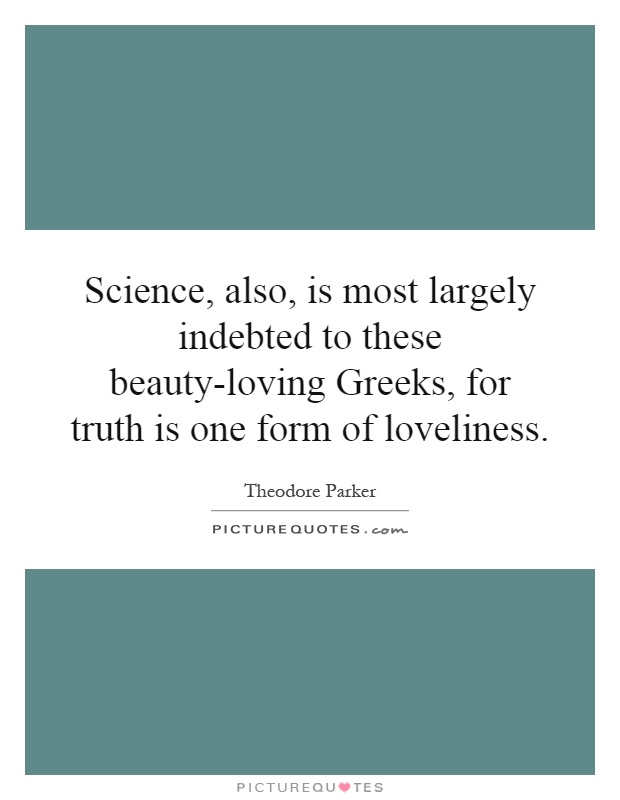Science, also, is most largely indebted to these beauty-loving Greeks, for truth is one form of loveliness

Science, also, is most largely indebted to these beauty-loving Greeks, for truth is one form of loveliness
Theodore Parker, a prominent American Transcendentalist and Unitarian minister, believed in the interconnectedness of beauty, truth, and science. In his writings and speeches, Parker often emphasized the importance of recognizing the beauty in the natural world and how it can lead to a deeper understanding of truth. He saw the Greeks as pioneers in this regard, as they were known for their appreciation of beauty and their pursuit of knowledge through scientific inquiry.Parker believed that science, like art, could be a source of inspiration and wonder. He saw beauty as a fundamental aspect of the natural world, and believed that by studying and appreciating this beauty, one could uncover deeper truths about the universe. In his view, the Greeks understood this connection between beauty and truth better than anyone, and their legacy continues to influence scientific inquiry to this day.
One of the key ways in which science is indebted to the Greeks, according to Parker, is in their emphasis on observation and empirical evidence. The Greeks were among the first to systematically study the natural world, using observation and experimentation to uncover the underlying principles that govern the universe. This approach to science, rooted in a love of beauty and a desire for truth, has become the foundation of modern scientific inquiry.
Parker also believed that the Greeks' appreciation for beauty extended beyond the natural world to the realm of ideas. He saw beauty in the elegance and simplicity of mathematical equations, in the harmony of the laws of physics, and in the interconnectedness of all living things. For Parker, science was not just a means of understanding the physical world, but a way of appreciating the beauty and order that underlies it.












 Friendship Quotes
Friendship Quotes Love Quotes
Love Quotes Life Quotes
Life Quotes Funny Quotes
Funny Quotes Motivational Quotes
Motivational Quotes Inspirational Quotes
Inspirational Quotes